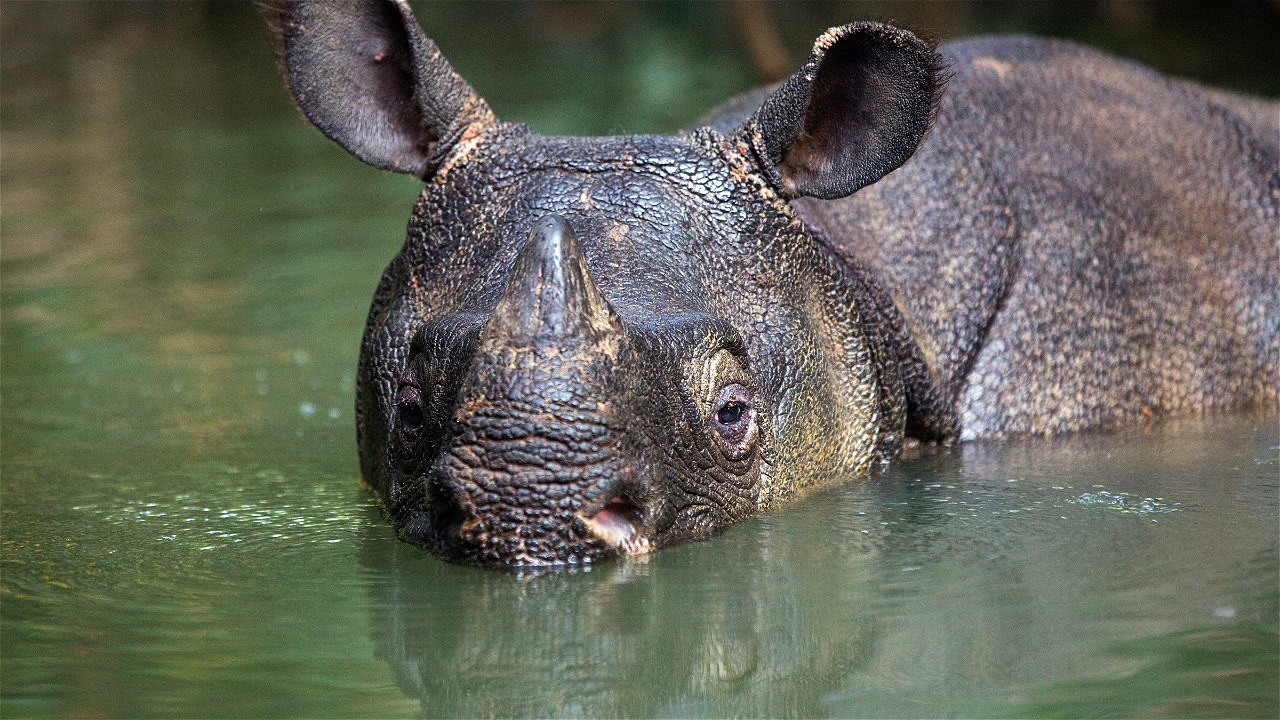"STEEL HORN EXPEDITION" PLAYS IN BUMI PANDA
By: Sani Firmansyah
A documentary film about the condition of Javan Rhinos in Ujung Kulon was screened for the first time at Bumi Panda Bandung, on Saturday (15/11). The film by David Herman, titled "Ekspedisi Cula Baja", uses a different visual approach and is claimed to be able to provide local and urban communities with an understanding of the importance of the existence of Javan Rhinos in Indonesia.
After the movie screening, a discussion was held on the condition of the Javan Rhino, with a guest speaker Chairul Saleh, Conservation Science for Flagship Species Coordinator of WWF-Indonesia. A number of students from Padjadjaran University Bandung were seen actively participating in the discussion. In his presentation, Chairul conveyed the fact that currently the number of one-horned Javan Rhinos only remains around 50 individuals in Ujung Kulon, with a maximum population growth rate of 1% per year. "The population growth rate of the Javan Rhino is stable, moreover this species is protected by Law No. 5/1990 and Law No. 41/1999 so that Javan Rhino poaching is almost non-existent." Chairul continued that threats that could reduce the Javan Rhino population come from the Anthrax disease outbreak and the potential eruption of the Krakatau volcano. Anthrax disease is the result of the growing buffalo population in the Ujung Kulon area, due to the extinction of the Javanese Tiger. "WWF-Indonesia is working with Ujung Kulon National Park to maintain the Javan Rhino population by monitoring the development of Javan Rhinos through camera traps. We are also looking for a second habitat if the Krakatau volcano erupts. Javan Rhinos must remain in their habitat because the extinction of this charismatic animal will affect the balance of nature, "concluded Chairul.
Bona, a student of the Faculty of Communication Sciences, Padjajaran University, commented on Chairul Saleh's presentation. "What we do today will clearly have an impact on the balance of the ecosystem. If we lose one species, it may not be felt on a daily basis. But if many are lost, the impact will be felt. The weather anomalies that have occurred lately can be an example of the disruption of the ecosystem." He also highly appreciates the creation of the documentary film "Ekspedisi Cula Baja" which he considers to be insightful and hopes that this film will be able to carry out its mission in society.





